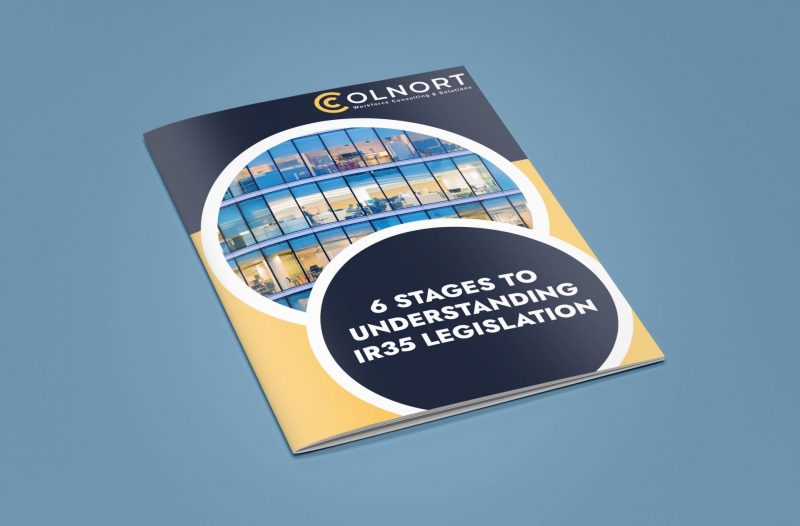
You are an exciting new start up. What are your priorities? Employment contracts, HR policies and procedures and thinking about your employment law obligations? We thought not….
Let’s face it; you’re more likely to be working flat out on new product development, competing for great talent, securing funding and juggling a million other things. Potential employment law ‘issues’ won’t be high on your radar but actually, getting the right HR and employment law foundations in place can add tangible value and reduce business risk.
In Part 1 of this series we'll be exploring how to get your basics right and in Part 2 to follow, what to expect and prepare for as you grow. In Part 3 we'll help you prepare for your journey through the excitement and challenge of transformation and change to keep you steady on the path to success.
Employee Handbook – a tool to help you comply with the law
A variety of legal requirements impact upon how businesses manage their people starting right from the outset. This includes important information that must be given to employees when they join.
Certain information must be provided in a ‘written statement’ (typically the employment contract) whilst other bits can be contained within ‘some other document which is reasonably accessible to the employee’.
An employee handbook is a great practical way of keeping everything your employees need to know about their employment in one place. To comply with the ‘written statement’ requirements, as a bare minimum it should cover how you deal with disciplinaries, grievances and sick pay. Now that all employers are subject to the auto enrolment pension regime, a handbook is an ideal place to explain how you manage that. If you have more than five employees there is a requirement to have a health and safety policy, which we recommend is included in the employee handbook.
These ‘must have’ requirements apply to almost all employers, but some will have other legal boxes they need to tick. For example, it will probably not have escaped your attention that last year saw a fundamental change to the UK’s data protection legislation.
GDPR
GDPR and the new Data Protection Act 2018 place much more emphasis on transparency in the way data is managed including employee data. It is much less likely that employee consent can be relied upon and, whilst there are a number of legitimate reasons to process data, it is vital that employees are made aware of these. For example, data on what your employees do and how they do it drives valuable insights, but your ability to process such personal data legally and avoid the long arm of the Information Commissioner’s Office may depend on what you have told your employees about how you process that data.
Having a ‘privacy notice’ setting out the types of data which you may gather during the course of someone’s employment, how it will be processed, and your justification for all of that is the best way to demonstrate compliance with the new regime, and make sure you can process what you need to.
What else do you need to think about?
Most businesses have some kind of obligations to third parties like key clients or suppliers, either written into any relevant contract or imposed by law – so it’s vital your employees understand what they have duties around or are responsible for.
For example, have you heard of the Modern Slavery Act? It requires all companies with a turnover of £36 million or more to publish a statement explaining the steps they have taken, to ensure that their business is not tainted by slavery or human trafficking. That might not sound like its relevant to you, but in practice it impacts the whole supply chain and responsibilities on the part of all employees in it.
And what about sustainability or environmental protection? Do you have a position or internal policy on these areas? If you do there may be obligations on your employees which you need to make clear and enforce. These kinds of areas are all worth thinking about if your business is part of a supply chain connected to a larger business. Increasing numbers of our clients are finding that having a policy on something like modern slavery or being able to demonstrate core values alignment are pre-requisites to winning new business.
Support for building your culture
Attracting and retaining great talent can be hard. Great HR and employment law foundations will help you set the cultural tone for your business and support recruitment.
Carefully thinking about how your values impact on how you want to manage your business is a great way to form the right set of HR policies and procedures that will help inspire people to want to work for you. Think of an employee handbook as guide to your business – the place for your employees to go to understand who you are, what you believe in and ‘how we do things around here’.
Let’s take something simple like pets at work. Maybe you already have some dogs wandering around the office? We do. But have you thought about how you could formalise that into an employee policy which many people would think of as a huge benefit of working for you? Equally having certain animals about could be offensive or cause anxiety to others, so formally setting out how you would deal with this is vital to avoid related grievance or discrimination concerns.
Protecting your business
Getting the right employee contracts and related policies and procedures for your unique context in place will help protect your assets and avoid nasty consequences when employees do something wrong (which they will….eventually!).
Let’s think about assets and IP. In a digital or tech start-up these will include your clients, your products, your know-how and techniques, ‘trade secrets’ and your market intel. How do you protect an employee walking off with all that? A first step is very carefully crafted restrictive covenants and other protective clauses in your employment contracts. Generic type clauses routinely fail to protect because they are too wide or unreasonable, so making sure you get this exactly right is one of the best investments you can make to protect business value.
Its quite likely that working in your business is fast paced and fun, with social media and socialising being an integral part of a work-life blend across your teams. But this context can have significant impacts on your responsibilities as an employer.
The line between work and home is much more blurred since the introduction of technology allowing employees to work online at home. Matters are complicated by social media where work colleagues are 'friends' online if nowhere else. The bigger the crossover between work colleagues and social media friends, the more likely it is that online conduct might be dragged into the work sphere and implicate you as the employer. Social media, bullying and harassment policies whilst not required by law are essential to have, together with a clear position on what you consider to be inappropriate conduct outside work, for your business to be fit for management in the modern age.
Next up in part 2 of our series: Teething pains and growing up - what to expect as you grow
LexLeyton is a regulated law firm specialising in HR and employment law for business www.lexleyton.co.uk









